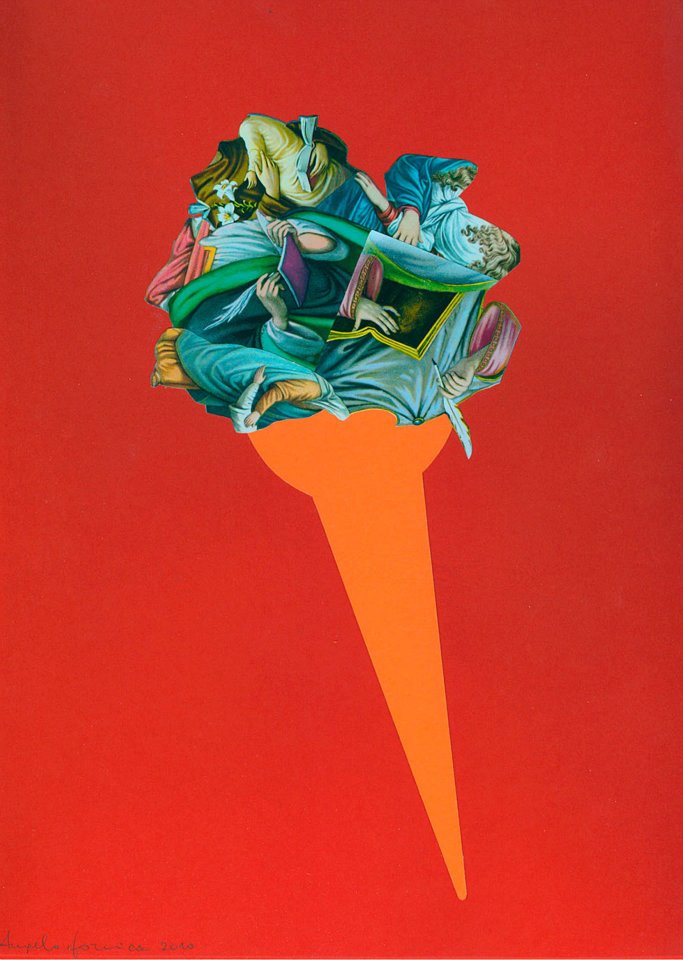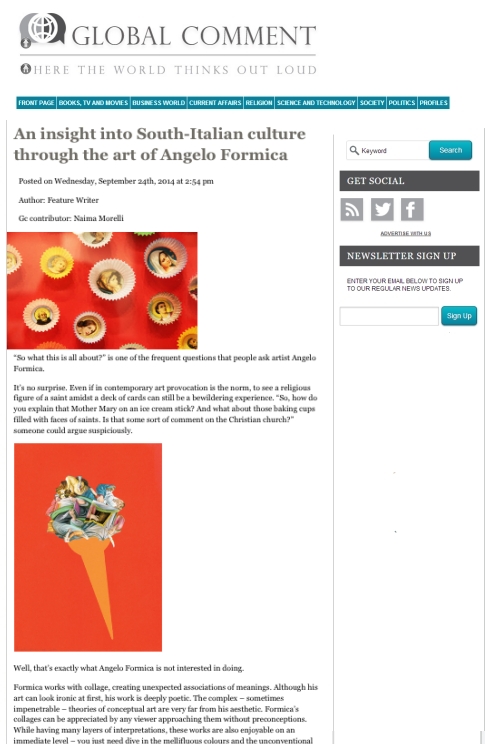
Che cos’è il Popolo?
Ci sono solo due modi possibili per rispondere a questa domanda, o chiamare in causa studi antropologici del tipo Fabio Dei, Cirese, De Martino, oppure argomentare con l’arte.
L’una comprensione è intellettuale (vi parleranno di società dei consumi, snaturalizzazione bisogni, egemonizzazione e compagnia), l’altra parla direttamente ad un sentire.
Il lavoro di Angelo Formica, che ho avuto modo di beccare alla fiera Rome Contemporary, va esattamente in quella direzione.
Con un’operazione surrealisticamente a supportare un significato, anzi un’identità, quella popolare più precisamente, Formica gioca con i simboli della tradizione.
Il suo background siciliano (è originario di Milazzo) l’ha immerso fin da bambino in un humus culturale che è riuscito a rielaborare solo una volta trasferitosi a Milano, recuperando quel necessario distacco.
Un po’ come Jorge Amado, grandissimo scrittore del Popolo, il quale riusciva a narrare del suo natio Brasile solo quando si trovava a Parigi.
Read More







